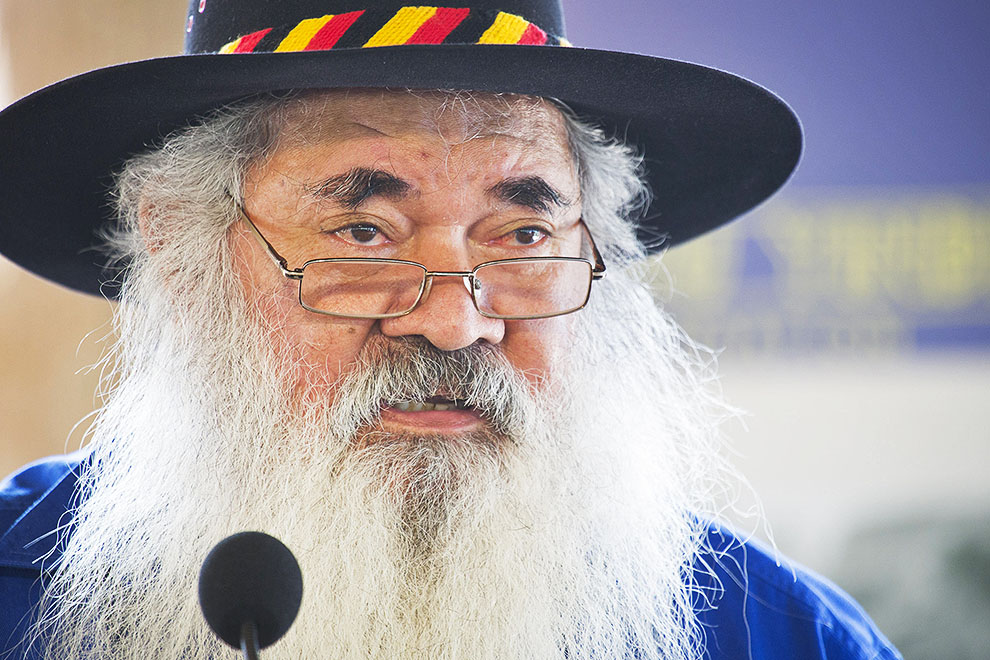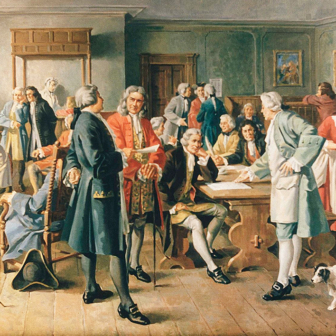Updated 3pm, 1 August 2016
As Marx warned, the tragedy of history repeats as farce. This is something the Turnbull government should bear in mind as it establishes the royal commission into the failings of the Northern Territory’s child protection and youth detention systems.
Last Monday, the ABC’s Four Corners showed footage of child abuse at the Don Dale Youth Detention Centre in Darwin. Malcolm Turnbull announced the commission the following morning, and by Thursday he had proposed that the former NT chief justice, Brian Martin, would head it. On Saturday, opposition leader Bill Shorten called for two Indigenous commissioners to be added to the inquiry team. Then, on Monday, Brian Martin quit the role saying that it was apparent he would not have the full confidence of sections of the Indigenous community.
In the midst of this rapid movement, newly elected senator Pat Dodson went on ABC Triple J’s Hack to remind us of both parties’ failure to implement the recommendations of the Royal Commission into Aboriginal Deaths in Custody, on which he was a commissioner, after it reported twenty-five years ago. Asked “Have we learned anything since then?” Dodson replied:
Look, I don’t think we have, quite frankly. The royal commission talked about a duty of care that officers and police should really have drilled into them as part of their obligations and duties when they have people who are vulnerable or in their care. I don’t think that lesson’s been learnt. I don’t think the lessons about the pathways of why young people are brought to the courts and then incarcerated in the numbers in which they are incarcerated have been learnt. The health, education, the housing factors, I don’t think we’ve learnt much about that. We talk a lot about it, but we haven’t done much about it. And I don’t think we’ve done much to educate the people who legislate. Because you’re a politician doesn’t mean you’re Einstein. It doesn’t mean you understand all the things that need to be understood when you’re dealing with this most sensitive of areas.
Dodson himself was appointed late to the deaths in custody commission in response to criticism that it was top-heavy with judicial white males. I worked for him as a research officer there in 1989 and our professional paths have crossed frequently since. He was given the job of investigating the underlying problems that led to deaths in custody. He recruited a team of Aboriginal leaders – Darryl Kickett, Rob Riley, Peter Yu, Jackie Oakley – to tour the country’s jails and police lockups with him. Marcia Langton worked from Darwin to produce the landmark report Too Much Sorry Business.
These, and others I have forgotten, witnessed trauma at the front line. Referring to the present, but no doubt remembering the past, Dodson told Triple J listeners, “This is a matter of regimes that talk tough, that want to incarcerate young people, that want to throw away the key basically, that are permitted to torture, that are permitted to do all sorts of things under the law and walk free! Now that’s not right and it’s not just.” No police or judicial officers were prosecuted or disciplined for the cases investigated by the deaths in custody commission.
Dodson’s brother, Mick, was the Aboriginal and Torres Strait Islander social justice commissioner during another judicial inquiry, the stolen generation inquiry into the removal of children from their families. He endured day after day of testimony about heartless officials and heart-breaking grief. Here too the commission’s recommendations have only been selectively implemented.
Pat Dodson’s stance is not political posturing. It is personal. And it takes its toll. Rob Riley tragically died by his own hand not long after the deaths in custody commission concluded. The survivors of Aboriginal campaigns are not ordinary politicians. They suffer the rough and tumble of public life with nothing to retreat to but their own inner strength, and that of their families and communities.
After watching Four Corners last week, another Aboriginal reporter from a different front line, Stan Grant, joined them with a cry from the depths. “I could call this anger,” he wrote in the Guardian. “I could tell of rage. I could describe a suffocating, nauseating hopelessness. For me it is seeing the physical scars of my loved ones: bodies marked by knife wounds, broken bones, missing fingers, and dark ink tattoos. These tell stories of lives at the coalface of bigotry and poverty.”
A royal commission will not fix this. But it may conceivably lay some groundwork if both sides of politics commit themselves in advance to implementing its recommendations. This may be politically unpalatable, but it is inherently logical.
When Brian Martin was chief justice, no one was entitled to stand before him and say, “I appreciate your decision, judge, but I’m going to ignore it.” If the federal and NT governments have faith in commissioners and the method of their inquiry, then there is no credible reason for them not to commit in advance to following their judgement.
There is no do-nothing option. Business as usual is doing something, in this case something bad. The two positions of the policy switch are the same: on/on. Not committing to full implementation is effectively committing to bad implementation.
Experience of Indigenous royal commissions tells us that without implementation or follow-up they are simply an excuse for wallowing in white guilt as a smokescreen for political arse-covering. History returns as farce.
Though he is a measured and inclusive statesman in public life, in private Dodson would probably agree with Grant’s rejection of white hand-wringing concern. As Grant says:
After Four Corners I watched a little of the Q&A panel discuss the horrors of what they had seen. They discussed Indigenous incarceration, black deaths in custody. They answered questions about constitutional recognition. They talked about the first peoples of this country and there wasn’t even an Indigenous person on the panel. Not one of them even mentioned how utterly inappropriate it is to be talking about us and not including us.
I just wanted to yell at the screen, get out of our lives!
The government resisted calls from the opposition and Indigenous leaders to appoint Indigenous co-commissioners before Martin quit – calls partly prompted by the perception of “whitewash” that Grant wrote about in the Guardian. The opportunity for appointment of an Indigenous commissioner opened up, and the government has moved swiftly to appoint social justice commissioner Mick Gooda alongside former Queensland chief justice Margaret White. But the Dodsons can tell us that is no guarantee of positive change.
It is harder to yell “get out of our lives” to an Indigenous commissioner, but even without one that was never going to happen. An achievable, though difficult, step is for the rest of Australia to stand with Stan Grant and see those kids as our kids – as Australian kids and as ours. It is at least as hard for Aboriginal people to grant us that right as it is for the rest of us to step up to it. •




